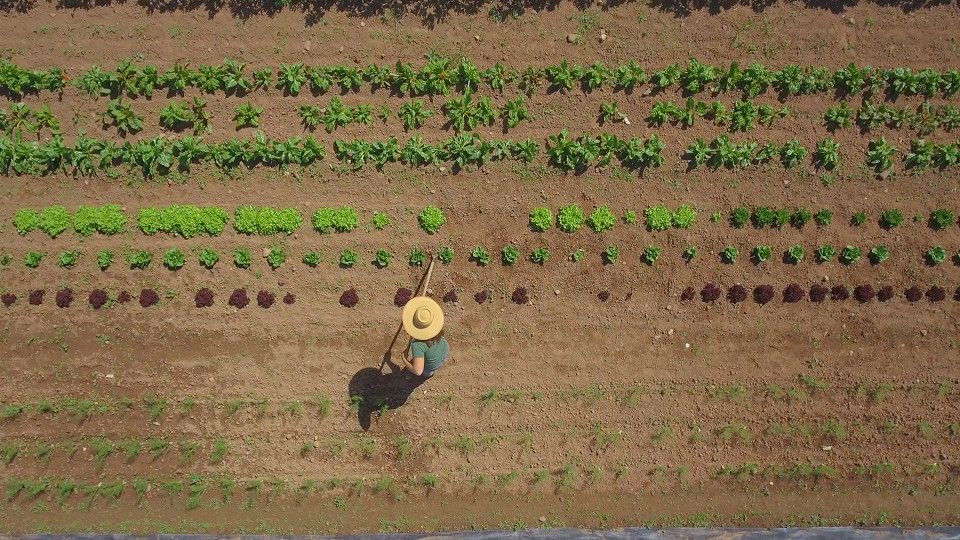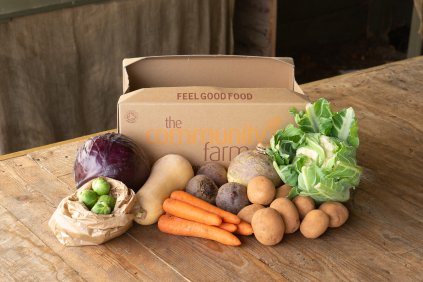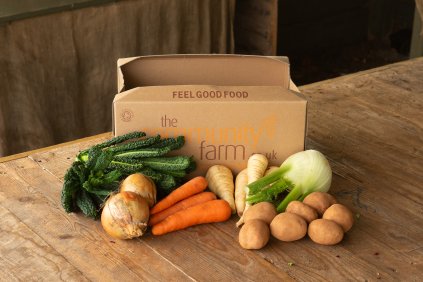You may have noticed a bit more root veg and a few less leafy greens in your boxes over the last few weeks. Or maybe you’ve spotted a bit more imported produce starting to appear on our website. Perhaps, if you have your ear to the soil, you may have even heard the term 'hungry gap' banded about by your flatcap wearing friends. Fear not, we're here to explain all...
What is the hungry gap?
The hungry gap is not just that awkward time at work when you can't concentrate on anything other than what you're having for your lunch.
It's also the name given to the time of year when we've eaten all of the crops that were planted at the end of the summer, but before the spring crops are ready to find their way onto our plates. In the UK, cold temperatures and short days in the winter mean plants stop growing and we can’t plant new crops until it warms up again in spring.
That gap in productivity means there’s very little to harvest from April until around the middle of June. Put simply, the hungry gap is the time of year when there is less UK produce available to eat.
OK. Why does that matter to me?
Well, you might notice a bit more root veg in your box as that’s generally what’s still available in the UK at this time of year.
And whilst we always prioritise local produce because it tends to taste fresher, as well as being more nutritious and having a smaller carbon footprint; during the hungry gap we do inevitably have to include more imported produce to keep up the variety and avoid the dreaded swede fatigue (although for all you diehard British veg fans, you can always choose the Gert British box which is 100% British, all year round).
What about heating the crops to keep them warm?
Hmm. Artificially heating and lighting in greenhouses and polytunnels is an option but can be expensive, financially and environmentally. All of that heat sends the energy bills through the roof and until we have 100% renewable energy in the UK, more energy will usually mean burning more fossil fuels.
In fact, produce grown in the UK out of season will often have a higher carbon footprint than food flown in from overseas.
Well, what are you doing about it then?
For starters, having good relationships with lots of farmers means we can shop around and find as much variety as possible. For example, heading to the southern tip of Cornwall is a good option in early summer as their soil warms up first and our suppliers there will have crops ready soonest.
Those good relationships also mean that we know to support each other year-round and we’re spared the price hikes in UK produce that the supermarkets have to deal with at this time of year as they compete with each other for limited supply.
We also only source UK produce outside of the natural growing season very rarely; and only from growers who we know we can trust to heat their growing spaces using locally sourced biomass to avoid those fossil fuel emissions.
When we do have to import, we never fly in our produce, and that helps keep our carbon footprint as low as possible, too.
In our fields we also do all we can to minimise the gap and extend the growing season; like making use of our polytunnels which stay warmer than the open fields and help plants grow quickly for early harvests.
What can I do to help?
Thanks for asking! If you're new to a veg box, embrace eating with the seasons! Getting your favourite veg a little less often, makes it all the sweeter when it does arrive. And remember that we do offer extra veg on our website if you fancy a treat.
Then just relax in the knowledge that we’re doing all we can to support local farmers, minimise our environmental impact and keep you fed with the best, seasonal, organic produce we can buy.
You can find some recipe inspiration below that might help you make use of the root veg that's still going strong, and some ideas to get greens on your plate from some more unusual sources (personally, I think cauliflower leaves are the best part of the plant).
We like to think of the hungry gap as a good reminder that food comes from the earth and flows with the seasons. Enjoy!














